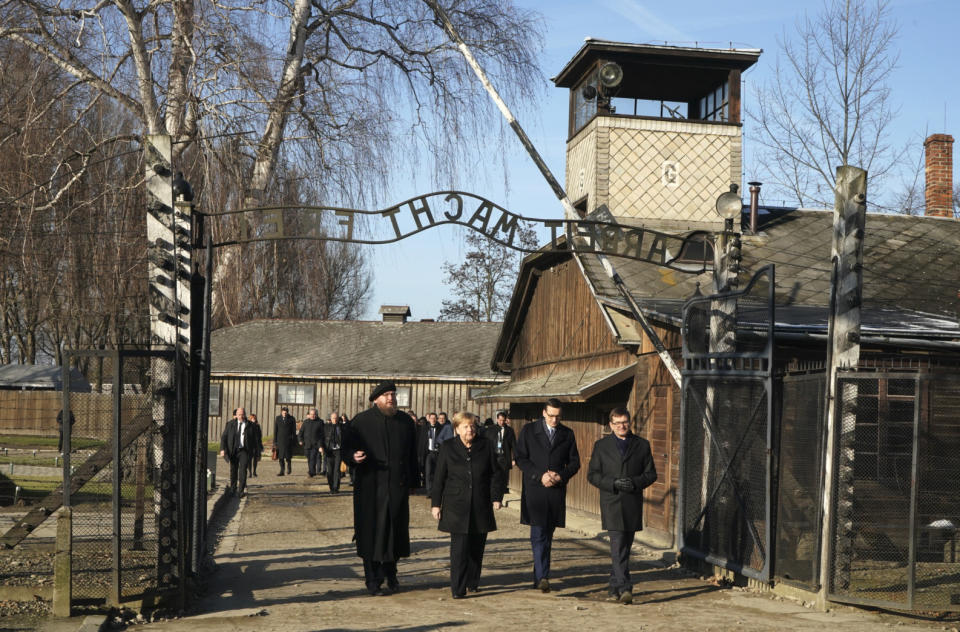Angela Merkel expresses Germany's 'deep shame' on visit to Auschwitz death camp

Angela Merkel visited the former Nazi extermination camp Auschwitz in Poland on Friday, for the first time in her 14 years as German chancellor.
Together with Polish prime minister Mateusz Morawiecki, Merkel observed a minute’s silence at the camp’s “wall of death” where thousands of Nazi victims were shot.
The Nazis murdered more than six million Jews during the Holocaust, an estimated one million of those at the Auschwitz-Birkenau concentration and extermination camp complex between 1942 and 1945.
As well as Jewish people, there were also tens of thousands of Polish and Roma people, and Soviet prisoners of war killed at Auschwitz-Birkenau.
“We all bear responsibility. We must never forget,” Merkel said in her speech at the Birkenau site.
"To be aware of this responsibility is part of our national identity, our self-understanding as an enlightened and free society... a democracy," she said. “There can be no drawing a line under this. And no relativisation.”
“I bow to the suffering of these people.” Merkel continued. “I bow to the victims of the Shoah."
The International Auschwitz Committee said the chancellor’s visit was an "especially important sign" of solidarity with survivors of the Holocaust. January 2020 marks the 75th anniversary of the Allied liberation of the camp, and today is the tenth anniversary of the Auschwitz-Birkenau foundation which preserves the site.
Merkel’s visit notably comes at a time when Germany is grappling with a rise in right-wing populism.
Leaders of the far-right Alternative for Germany, the third largest party in the federal parliament, have called for an end to Germany’s culture of atonement for its crimes during the Second World War. Party leader Alexander Gauland has described Hitler and the Nazis as “a mere speck of bird shit in more than 1,000 years of glorious German history."
READ MORE: A polarised Germany marks 30 years since Berlin Wall fell
A report in May this year found a 10% increase in anti-Semitic crimes in 2018 from the year before, which mirrors a rise in anti-Semitism across Europe as a whole.
In October a 27-year-old German man tried to break into a synagogue in the eastern German city of Halle to attack Jewish worshippers at a Yom Kippur service. Failing to get into the synagogue, the gunman shot dead two passers-by.
In the wake of the attack the German police announced measures to better monitor and shut down right-wing hate speech online and vowed increased protection for the Jewish community in Germany.
In an interview with CNN earlier this year, Merkel admitted that there was “unfortunately” still a problem with anti-Semitism in Germany and not a single Jewish synagogue or school that did not need to be guarded by the police.
Germany this week said it would contribute €60m to the Auschwitz-Birkenau foundation.

 Yahoo Finance
Yahoo Finance 